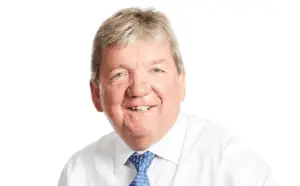Rank’s good news/bad news month
Rank reported contrasting news last week, with signs of recovery for its land-based business and an £80m cash injection contrasting with online underperformance. Now the challenge is on to make the two channels work in tandem, writes Scott Longley.

Rank has had a busy few weeks on the corporate front after it released its full-year results for the 12 months to June.
Which is more than can be said for its actual businesses for most of last year. As the company said in its statement, across its bingo, casino and international operations it had not enjoyed one single day of normal trading in the financial year just gone.
In fact, its retail operations in the UK, Mecca Bingo and Grosvenor Casinos, only got the all-clear to resume somewhat normal trading conditions in May while the company had to wait until early August for the last of the restrictions affecting casinos in Scotland to be removed.

While not quite firing on all cylinders, as of the time of the results the casinos arm was pulling in £5.7m a week in net gaming revenue while the bingo clubs were at £2.6m a week NGR. As the analysts at Shore Capital said, this was comfortably above the break-even requirements in each business, albeit still respectively 19% and 21% down on the same 13-week period in 2019.
As with other retail sectors, the company now has its fingers crossed that the pandemic won’t have (another) sting in the tail and cause any further disruption.
Moreover, Rank is at least secure in its financial position. The really good news from August came after it was announced that Her Majesty’s Revenue and Customs (HMRC) would not be appealing the decision of the VAT tribunal over the long-running case over VAT on gaming machines. According to one trade magazine, it was a 21-year battle and Rank can consider itself well-deserving of the circa £80m it will now receive in full and final settlement.
The omni-channel challenge
This adds to the generally rosy liquidity profile for Rank, despite the disasters of the pandemic. With that £80m and the £98m in cash and cash equivalents, it is set fair to resist whatever further hardships it might face in the year ahead.
Less promising, however, was what Rank had to say about the online business over the past year and what that underperformance had to say about Rank’s omni-channel efforts.
In its results, the company said digital NGR declined 6% to £136.6m and while some of that was due, as the company put it, to the “stringent application of affordability checks,” an element of it was ascribed to the lack of customer flows between online and the land-based businesses.
In short, the Grosvenor Casino and Mecca Bingo online arms are very much omni-channel businesses where an important pillar of revenue and profit comes from encouraging players to engage in both environments. With the land-based businesses shuttered, this obviously becomes trickier.
An upcoming report for iGB will look at how in the US, the gaming entities are talking about omni-channel being central to the business case in the US. What Rank’s online woes appear to show is that it is already a well-established aspect of the business in Europe.
The one (online) struggles without the other (land-based) and particularly in UK gaming, it is Rank that has most obviously suffered during the pandemic. With the crowds back in the casinos and bingo clubs, the company will be hoping it can reverse that situation in the months to come and the analysts appear to be positive.
At Peel Hunt, Ivor Jones suggested that with the Grosvenor Casino estate in particular there is likely to be a full operating profit recovery as customers return. With bingo, however, there might be a slow ramp up due to what the company suggested was a nervousness among some elements of the customer base to go back to playing in-person.
Whereas Peel Hunt has maintained its 2023 operating profit forecasts for Grosvenor Casinos, the team have lowered their operating profit forecasts for the Mecca Bingo venues business to £23.4m in 2023 versus a previous estimate of £29m.
“This partly reflects our expectation of a circa 20% reduction in the number of venues between FY19 and FY23E, but mainly uncertainty over the scope for Mecca to restore volumes of customers in the core clubs,” they added.
Also in a forgiving mood was the team at Shore Capital. “After a difficult 12 months trading in Digital is said to be in line with expectations and is expected to improve as the year progresses, as transformation initiatives kick-in, cost savings are completed and venue players return,” said analyst Greg Johnson.
Further good news might yet come from the upcoming Gambling Act review. As this column has previously written, there are hopes that the government might actually look to relax some of the rules around the operation of casinos even as the rest of the UK gambling sector as a whole is facing up to a likely tightening around key areas such as advertising.
One of the areas where the casino sector is hopeful remains the possibility that retail sportsbooks might soon enough be sanctioned, a development that would certainly mimic some of the omni-channel opportunities currently being exploited in the US.

On the earnings call with analysts, CEO John O’Reilly suggested that plans were already afoot, saying that Grosvenor was trialing sports viewing in venue in preparation for the potential of being allowed to offer sports-betting.
That sports-betting lies at the heart of the omni-channel developments in the US is no surprise and similarly, it will not have escaped the notice of European casino executives about the excitement being generated by the potential for bringing a new audience to land-based gaming venues.
Previously, as the upcoming omni-channel report will suggest, in a UK context at least, omni-channel has been about bringing a previously land-based sports betting audience to online. That task has largely been completed. Now maybe it is time to think about reversing the direction of travel.
Scott Longley has been a journalist since the early 2000s, covering personal finance, sport and gambling. He has worked for a number of publications including Investment Week, Bloomberg Money, Football First., eGaming Review and Gambling Compliance. Scott now runs his own editorial consultancy, Clear Concise Media, and writes for a number of online and print titles.